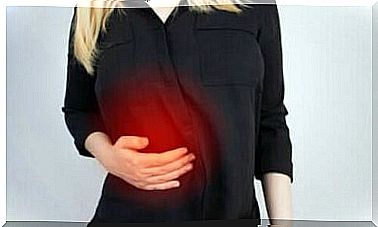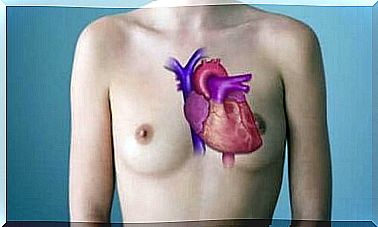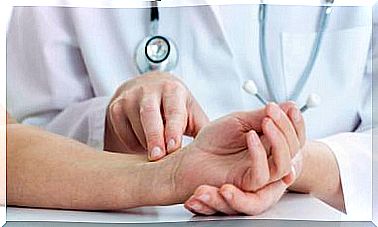Care After Wisdom Teeth Extraction
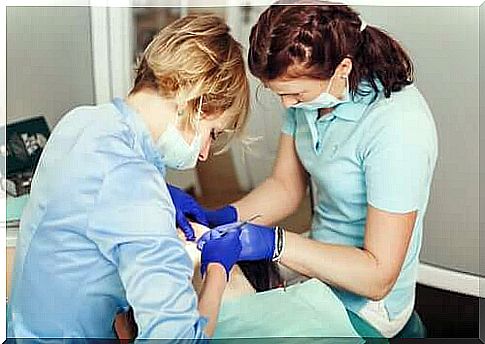
Many people hate going to the dentist for fear of pain. Wisdom teeth extraction is often one of the sources of fear as it can cause a lot of discomfort.
Wisdom teeth are those that appear between 17 and 25 years of age. However, in some people they never appear. They are also called third molars and they occupy the last place in the dental arch.
The truth is that their rash may go unnoticed, but it ‘s common for them to cause certain painful symptoms and it’s necessary to perform an extraction. This needs to be done, for example, when they press on the rest of the teeth and create tension in the arch.
In this article, we explain everything you need to know about wisdom teeth extraction. We will also discuss what care is needed after the operation to avoid complications.
Why is wisdom teeth extraction necessary?
As already mentioned, wisdom teeth appear at an age when the rest of the dental arch is fully formed. Therefore, many people do not have enough space in their mouths for these teeth to come out and develop normally.
As a result, some wisdom teeth may grow by pressing on the adjacent tooth, resting on it. They may even grow towards the back of the mouth or fail to overcome the jaw bone.
These situations cause a lot of discomfort and complications. Among them, the most notorious is intense pain. Gums can become infected, adjacent teeth can be damaged, and the entire area can become inflamed.
Also, people who are short on space notice how the position of all their teeth is altered. The teeth can become overlying due to the pressure exerted by the wisdom teeth. Even in cases where teeth show up without any setbacks at first, it is possible that problems will develop over time.
As they are in the deepest part of the arch, it is very common for these teeth to have cavities or accumulate food debris. All these aspects make it more convenient to extract them than to keep them.

What should be done when wisdom teeth are extracted?
Wisdom teeth can cause jaw pain and even headaches. They are also often accompanied by bad breath and inflammation of the gums. The extraction is done through an outpatient surgery that lasts about an hour and a half. Generally, local anesthesia is used.
Right after the extraction, dentists recommend certain care so that the recovery does not present problems. First, it is important to use pain relievers to relieve the pain or take them preventively to prevent it from appearing.
For this, you can take non-steroidal anti-inflammatory drugs (NSAIDs) such as acetaminophen and ibuprofen. Also put a cold compress on your cheek to reduce inflammation. Other tips are:
- Do not spit right after the operation to prevent the wound from bleeding.
- It’s important to take the day off and not do intense activities.
- Choose soft foods for the first 24 hours. It is also essential to drink plenty of water and avoid hot drinks, alcohol and coffee.
- Do not smoke or chew tobacco as it can alter the healing process.
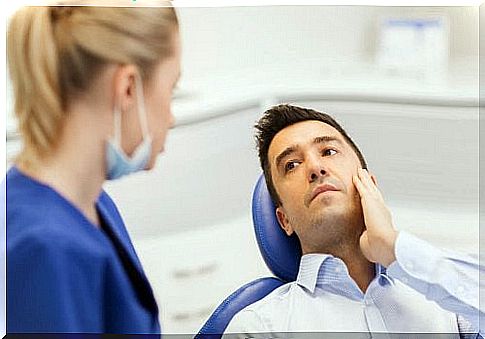
Most of the time, dentists place a stitch or two to close the wound. Although it may look unpleasant, this area must be cleaned properly. For the first few hours, it is best not to brush your teeth or rinse your mouth.
However, shortly thereafter, the mouth should be thoroughly cleaned, with special care dedicated to the wound region. Try subtly brushing the area with a soft toothbrush. Some dentists recommend rinsing with salt water to improve healing.
Conclusion
Wisdom teeth extraction is a much-feared procedure due to the pain it can cause and discomfort. However, if you follow your dentist’s advice and have regular checks, there will be no complications.
Not everyone has wisdom teeth, and not everyone will experience painful symptoms. However, the ideal is to carry out a periodic check with a professional to assess the general state of the dental arch.
